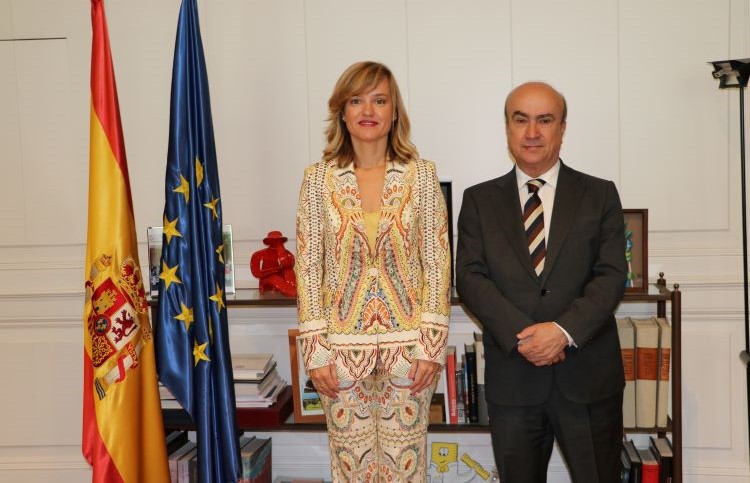The Diplomat
The Minister of Education and Vocational Training, Pilar Alegría, yesterday ratified the Spanish Government’s support for the re-election of Mariano Jabonero as Secretary General of the Organization of Ibero-American States for Education, Science and Culture (OEI).
The support for the re-election of the Spaniard for the four-year term 2022-2026 has been formalized through a letter co-signed by Pilar Alegría and the Minister of Foreign Affairs, José Manuel Albares, which highlights “the work carried out by the OEI General Secretariat under Jabonero’s leadership in recent years, which has come to lead educational, scientific and cultural cooperation in Ibero-America, even more so in difficult circumstances as a result of the COVID-19 pandemic.” The letter also defends the continuity of the cooperation program carried out by the OEI, which has “the unanimous recognition and approval of all the Ministers of Education of the twenty-three member countries of the organization”.
Alegría and Jabonero held a meeting yesterday at the Ministry’s headquarters, during which the minister conveyed to the secretary general of the OEI her desire to renew and strengthen educational cooperation with Ibero-America, a priority region in Spain’s foreign policy.
The election of the next Secretary General of the OEI will take place next November in Santo Domingo, Dominican Republic, during the XIV General Assembly of this organization, whose regulations provide for the possibility of re-election of the Secretary General. Elected during the XIII General Assembly of the OEI held in Mexico in 2018, Mariano Jabonero has led the reins of the OEI in the midst of a quadrennium marked by the celebration of the first 70 years of the organization and by the incidence of the coronavirus pandemic that affected more than 180 million students and paralyzed the cultural sector throughout Ibero-America.
In the last four years, the OEI has increased the implementation of cooperation projects in the field by more than 500% and promoted the digital transformation of education in the region, while strengthening the quality of Ibero-American higher education and vocational training, as well as boosting research and scientific activity. It has also supported digitalization in the cultural and creative industries and their role in the Ibero-American economy, promoting the intercomprehension of Spanish and Portuguese.
Since 1949, the OEI has been the first intergovernmental organization for South-South cooperation in Ibero-America. It currently has 23 member states and 19 national offices, in addition to its General Secretariat in Madrid. With more than 400 active cooperation projects with public entities, universities, civil society organizations, companies and other international organizations such as UNESCO, SICA, IDB, CAF and the European Union, the OEI represents one of the largest cooperation networks in Ibero-America. The organization currently has 16 million direct beneficiaries throughout the region.






